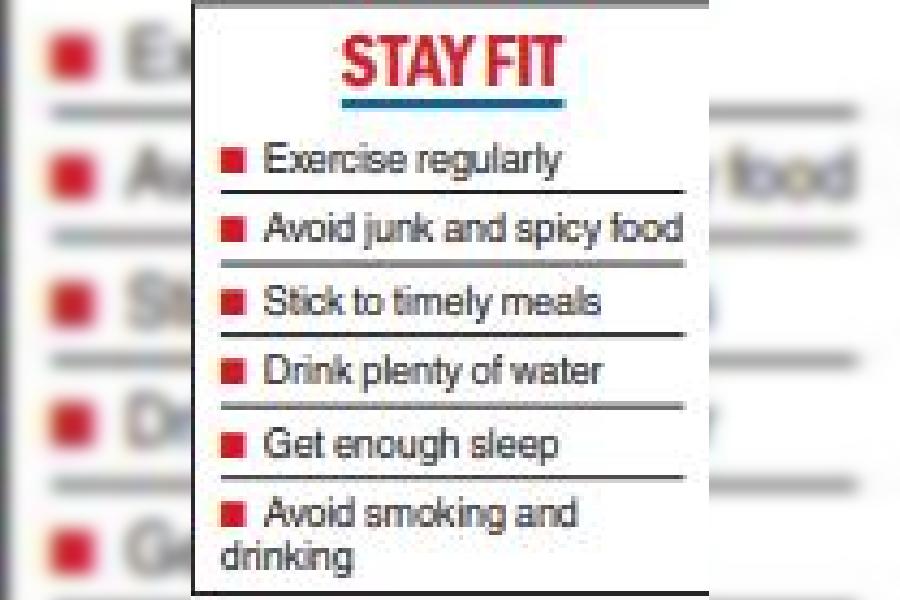The incidence of hyperacidity is on the rise because of lifestyle changes, doctors said at a symposium on Thursday.
They also cautioned against self-medication to treat the problem, saying unregulated pills could cause severe health problems.
Gastroesophageal reflux disease (GERD) has emerged as a significant concern across the country and Bengal is no exception, the doctors said.
It is a common digestive problem that happens when stomach acid flows back into the oesophagus. Typically, it causes heartburn.
"A study by Guru Teg Bahadur Hospital in New Delhi, in coordination with the Calcutta National Medical College and Hospital, has suggested one in three people in Bengal suffers from the problem," said Apurba Kumar Mukherjee, former professor and head of the department of medicine at the RG Kar Medical College and Hospital.
He attributed the high incidence to lifestyle changes. Lack of physical exercise, disproportionate deposition of body fat, irregular eating habits, eating spicy and junk food, sleep deprivation and stress, and smoking and drinking contribute to the problem, he said.

"Sedentary lifestyle is one key contributor. A significant section of the young working population is confined to couches and computers. They hardly engage in any physical activity. Mobile addiction is also to blame for this. Without working out, there is no mobilisation of body fat, which accumulates in undesirable areas," said Mukherjee, one of the speakers at an awareness programme organised by the Health Education and Awareness League Foundation.
He gave several tips to avoid GERD, such as regular exercise; drinking plenty of water; and avoiding junk and spicy food, smoking and alcohol.
"The majority of the problems can be addressed by lifestyle modifications. But if you have to take medication, please do so with a doctor's advice," said Mukherjee.
Arup Das Biswas, former director, Institute of Cardiovascular Sciences, spoke of the "pivotal role" that stomach acid plays in primary digestion and absorption of vital nutrients.
"Optimal stomach acid does not need treatment or suppression. It is a design of nature. Acid is good. Hyperacidity is bad. Many people have a tendency to have an antacid or other medicine every day, to be on a so-called safe side. But it is very unsafe," said Das Biswas.
